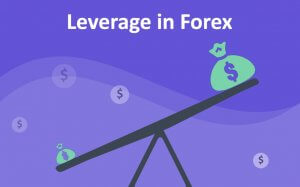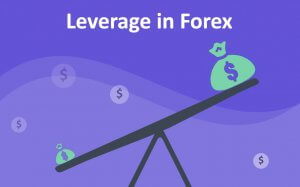We’ve already talked about leverage in other articles, and we’ve given a very precise explanation of what it is and how it works. Today begins the most interesting, Is the leverage good? Is it bad? Is it true that it ruins all traders? We’re going to find out what’s behind all the doubts and myths about financial leverage.
To do so, I will cite the phrases and opinions that I have been able to collect from the Internet.
“Leverage multiplies your losses.”
This phrase is not true, the 1:100 leverage allows me to operate as if I had 100 times more capital than I have, but this does not imply that I use all my credit to gamble on the stock market.
Effectively if I use all my buying potential in a single trade and I lose it I will be ruined, but never (go or not leveraged) you must play more than 1-2% of your trading account and only in a trade, if you are a daytrader then 1% is already quite risky to my understanding.
For example, I have created a 1:100 leveraged $1000 account (I have credit up to $100,000) but as a sensible trader, I don’t want to gamble more than 1% on my next trade. 1000$ * 1% = 10€
On Forex accounts you can play from 1 micro lot, then the value of each pip is 0.10$. So $10/ $0.1 would allow me to put the Stop Loss up to 100 pips away, but from here I should accept losses greater than 1%. As you can see a daytrader with a Stop Loss at about 30 pips can play 0.3% of his account and at the same time be leveraged 100 times.
“Leverage is what will make you rich.”
NO, of course not. Leverage is a very useful way to enter the stock market with little capital and be able to diversify your account better but to gain the important thing is your constancy, practice, constructive self-criticism, and positivity in front of the market.
“People without leverage work for those who do have leverage.”
I don’t think so, people without leverage look for the long term and they help themselves from the liquidity that we provide intraday and short-term traders to enter the market with better conditions and with more security. Leveraged traders tend to focus on the long term and rarely affect leverage.
“People with leverage work for those who are not.”
In the sense that short-term traders give liquidity to the market, yes, I have no doubt. But in a “we earn the money they lose” sense of course not! If Buffet had leveraged 3 times, today it wouldn’t be 3 times richer; it would be ruined. And the phrase is right. According to Warren himself:
“Unless you can see your stock drop 50% without causing a panic attack, you shouldn’t invest in the stock market.”
Obviously, no one who thinks like that should use leverage, if you don’t know how far you are going to take the losses you should seriously consider using leverage. On the other hand, to a short-term investor, the leverage comes from fable, in fact, there are professional traders who are dedicated to looking for commissions in exchange for giving liquidity to the market (the so-called rebates). These traders charge for every trade they open and usually look for 0 to 2 market ticks, no more. The leverage they use can reach 1:1000 without problems.
Well-used leverage means that a person with knowledge, work, and understanding of markets can come up with a very large portfolio that would otherwise be impossible. Personally, I want to highlight an interesting phrase that I have read:
“It’s not the bullet that’s dangerous, but the speed it’s carrying.”
In my humble opinion, this is not exactly so. The velocity of the bullet is not the key, it is the use you give it. If you’re a hunter who uses the bullet to feed the family, you’ll be using this speed to not die and still be alive. If you’re unconscious and you’ve never been taught to use a gun, you’re going to accidentally shoot yourself in the foot and complicate your life.
In trading the same happens, a bad trader is short and long term, the only difference is that in the short term you will take less time to make 100 trades and be out. In the long run, your agony can last 2-3 years and hopefully a bullish market can make you believe you’re good for a while… Then things like this happen…
“The problem with leverage isn’t speed, it’s how we use it.”
In summary, leverage can help you in the short term to operate in multiple markets at once without putting your personal economy at risk. You can diversify your portfolio better and have absolute control of risk. You can make interesting profits with much less capital and the same level of risk, but be careful, you need many hours of experience and rational use of leverage.
In the long run, leverage is only a good ally if you use a guaranteed Stop Loss and have a clear strategy. If you rely on buying and enduring (because of course, we all know that someday this will rise), then leverage will be your worst enemy.
From here on, everyone draws their own conclusions, we hope that with this article we have brought a little more light to leverage and that we have all taken a positive part of this debate.





